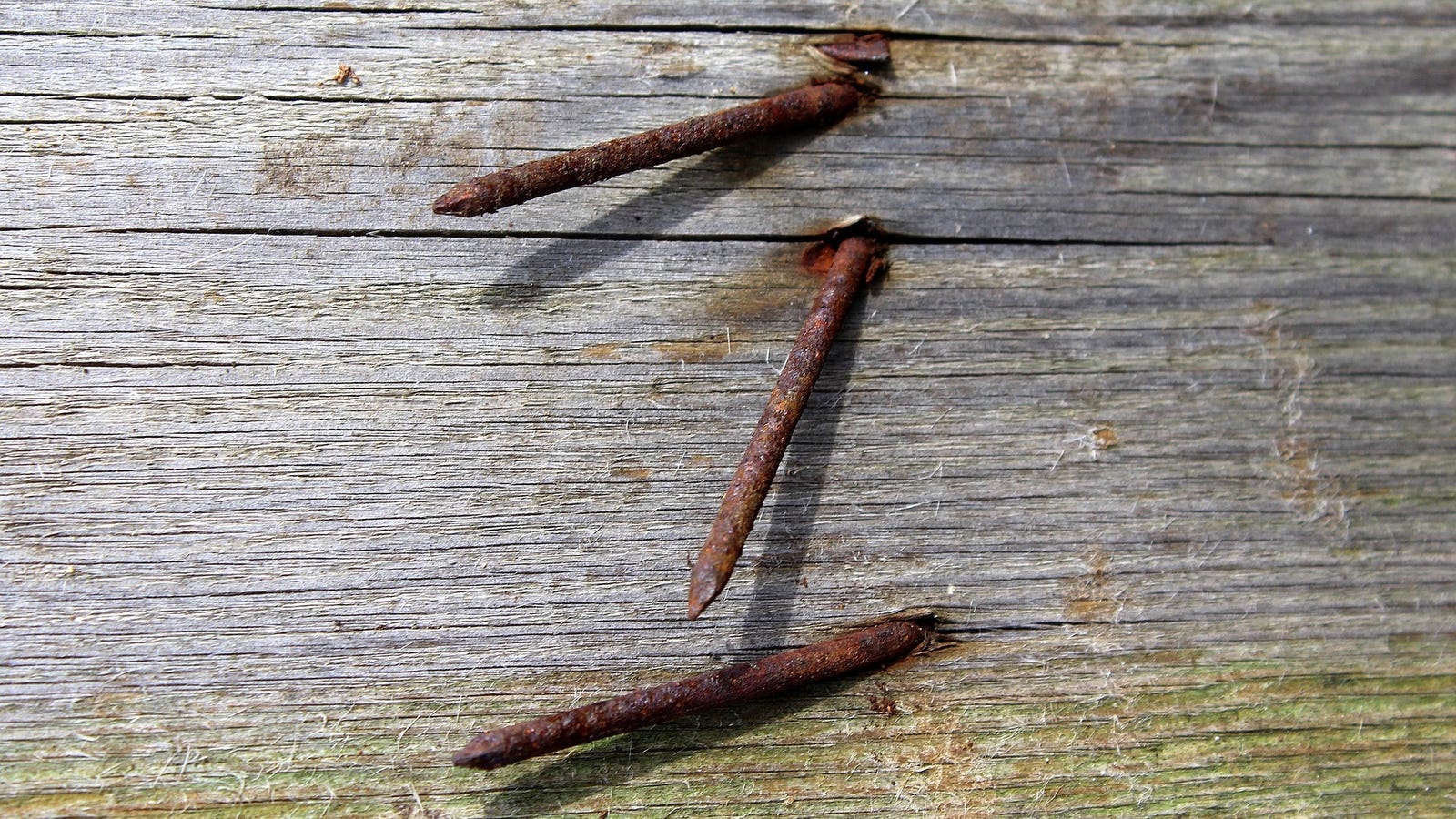
Rusty nails are famously associated with tetanus, but the disease is actually caused by bacteria, and doesn’t have anything specifically to do with rust. Here’s your primer on what tetanus is, and how to avoid it (spoiler: there’s a vaccine).
Tetanus is a horrific disease
Tetanus is also known as “lockjaw,” because it can cause spasms of the muscles that close your mouth. But those spasms are just the beginning, and as tetanus runs its course, it can result in painful, full-body muscle contractions that are strong enough to break bones. If you or a loved one start to develop symptoms of tetanus, seek medical care immediately.
Recently, a boy in Oregon contracted the disease after cutting his head while playing on his family’s farm. Six days later, the muscle spasms started. He was in the hospital for eight weeks and racked up over $800,000 in medical care. One in ten people who contracts tetanus will die from it. This boy is one of the lucky ones.
It’s caused by bacteria
Rusty nails aren’t the only place to get tetanus. It’s caused by a bacterium, Clostridium tetani, that lives nearly everywhere. It’s in soil, dust, and the feces of humans and animals.
The tetanus bacteria grow best when they are not exposed to oxygen, so deep wounds are especially at risk. A rusty nail is the classic example of a place to get tetanus because if you find a rusty nail while playing, it’s probably covered in dust or dirt; and it’s likely to cause a deep puncture wound where the germs can thrive. The rust has nothing to do with it.
There is a vaccine and you need it every 10 years
Fortunately, protection against tetanus is included in the DTaP vaccine that children receive in multiple doses (at 2, 4, and 6 months, then again as a toddler and before kindergarten). The boy in the Oregon case was unvaccinated.
The protection wears off over time, so we should all get a booster every 10 years. Traditionally this was the TD shot, which confers protection against both tetanus and diphtheria, but the Tdap shot provides those as well as protection against pertussis (whooping cough). A Tdap shot is also now recommended during pregnancy, because it can provide a newborn with antibodies against pertussis.
The protection from your childhood pertussis vaccine wears off over time, so if you’ve never had a Tdap shot, ask about it when you’re due for your next tetanus booster. If you can’t remember the last time you had a tetanus booster, you might be due. Ask your doctor or pharmacist—the shot is available (and usually free) at most pharmacies.
from Lifehacker http://bit.ly/2HQBIpJ
via IFTTT
